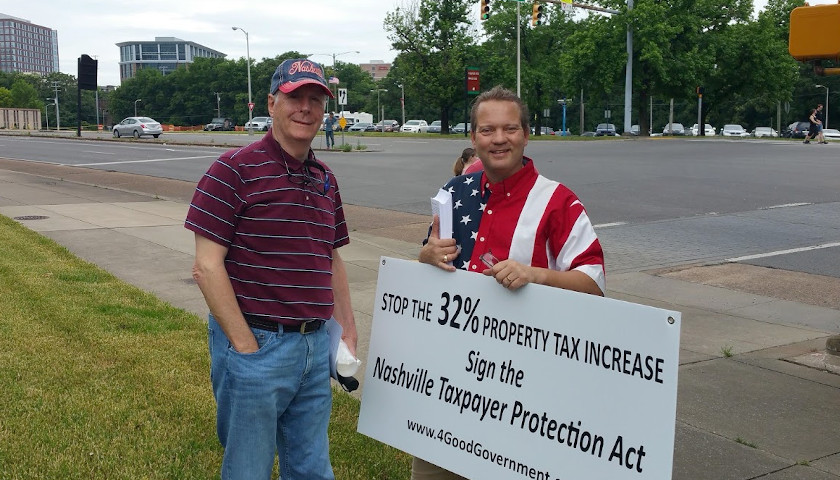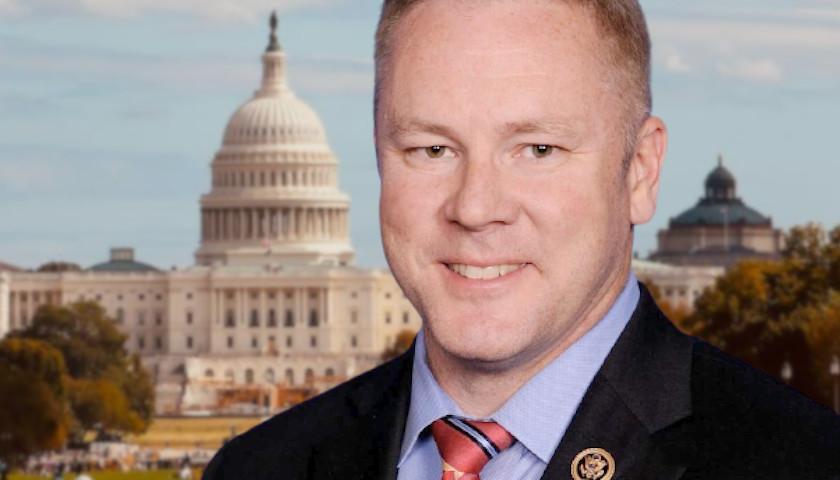A volunteer effort is seeking to protect taxpayers from reckless government spending by putting a Nashville Taxpayer Protection Act on the ballot in December.
The goal of this act is to force the government to be fiscally responsible through a series of amendments to the charter of the Metropolitan Government of Nashville and Davidson County.
The Nashville Taxpayer Protection Act, part of a larger slate of good government initiatives, is the brainchild of local attorney and 4GoodGovernment Founder Jim Roberts.
Roberts is no stranger to political fights in Nashville, as the attorney representing the plaintiffs in their namesake efforts to Save Our Fairgrounds and Save Fort Negley Park. In both cases, the plaintiffs claim the Metro Nashville government broke the law in giving away public land to private entities.
The Nashville Taxpayer Protection Act Roberts proposes consists of five separate amendments to the Metro charter, the goal of which is to “stop the fiscal insanity and force the Metro Government to be more financially responsible.”
Roberts advises, “Nashville was flat broke before the COVID-19 crisis, and the State was threatening to take over our city.”
To his point, Tennessee Comptroller of the Treasury Justin Wilson made an appearance at Metro Nashville’s Budget and Finance and Public Works Joint Committee meeting on November 13, 2019.
Wilson’s message at the time was that if Nashville didn’t balance its budget by February, the state would intervene, The Tennessee Star reported.
“Decades of over-borrowing and over-spending has nearly bankrupted us,” said Roberts.
Nashville’s total outstanding debt is now up to $5.2 billion, which Roberts said requires that “$1 in $10 tax dollars received goes to paying bond interest.”
When the principal is factored in, total debt service represents more than 14 percent of Metro Nashville’s annual budget.
According to the budget presentation for the upcoming 2021 fiscal year, another $1.3 billion in bonds – which would increase the total debt by another 25 percent – have been authorized but not yet issued.
These debt obligations do not include the liability for Other Post-Employment Benefits (OPEB), which is primarily health insurance for retirees. While Metro Nashville pays the expenses out-of-pocket each year, there is a huge unfunded future liability that was reported in 2017 to be nearly $3 billion and has only grown since.
According to budget documents, it is projected that Metro Nashville will finish up the current 2020 fiscal year, which ends on June 30, with a budget shortfall of $215.8 million.
The financial impact of COVID-19 and the March tornado is expected to carry into the upcoming fiscal year 2021, reducing revenue projections by another $281 million.
Yet, in Mayor John Cooper’s fiscal 2021 budget, he has proposed an additional $115.9 million, representing a five percent increase over this year’s original budget.
Cooper has that increase coming on the backs of Nashville’s property owners by way of a proposed 32 percent hike in the property tax rate, The Star reported.
Roberts declares, “It is time for this nonsense to stop! Fixing Metro’s budgetary mismanagement and financial incompetence should not come on the backs of innocent taxpayers.”
In addition, Roberts said, “It is time for Metro to rein in its spending, cut waste, and stop giving away our city, parks and public lands for free.”
To those ends, Roberts is pursuing getting five amendments to Metro Nashville charter on the ballot in December 2020, as follows:
- Property Tax Rates. Property Tax Rates shall not increase more than 2% per year after January 1, 2020, without a voter referendum.
- No Give-away of Our Parks, Greenways, or Public Lands. No part of a Park, Greenway, Public Land, or other real property shall be given away or conveyed without 31 votes of the Metro Council in favor. Transfers of interest in real property shall only be at fair market value or greater based on an independent appraisal. A voter referendum shall be required for transfers of interest in real properties valued over $5,000,000.00, and for leases exceeding twenty (20) years, commencing after January 1, 2020.
- Issuance of Bonds. All bonds issued or guaranteed after January 1, 2020, exceeding $15,000,000.00 for a specific project (excluding construction of educational classrooms, public libraries, public healthcare buildings, and police and fire stations, and Charter protected facilities) must be approved by voter referendum.
- Failed Promises: If a professional sports team leaves Nashville, or ceases playing professional games for more than twenty-four (24) months, all facilities and related commercial development shall revert to the people, and all related contracts shall be terminated, including land leased from the Nashville Fairgrounds.
- Metro’s Records Shall Be Open to the Public. Citizens are entitled to keep a close eye on Metro’s actions and entitled to inspect its books and records for free and consistent with the Tennessee Open Records Act’s protections (§10-7-501, et seq). A person or entity receiving more than $250,000 yearly in taxpayer funds or benefits agrees to be bound by this Amendment. Persons or entities refusing to provide public records shall be barred from receiving public funds and liable for treble the Citizen’s damages, including attorney fees.
To get these amendments on the ballot for Nashville citizens to vote on directly, bypassing Metro Council, it requires a petition signed by 10 percent of the Nashville-Davidson voters in the preceding general election.
As Roberts explained it to The Star, the number of signatures required will be determined from the August 6 election results.
Then, because of what Roberts referred to as a dishonest position that Metro legal previously took, the referendum will require a special election that will be held on December 5 for the amendments to get on the ballot.
Roberts said he would have preferred to have the referendum on the November 3 ballot, but the charter restricts amendments submitted by petition to once every two years.
– – –
Laura Baigert is a senior reporter at The Tennessee Star.





